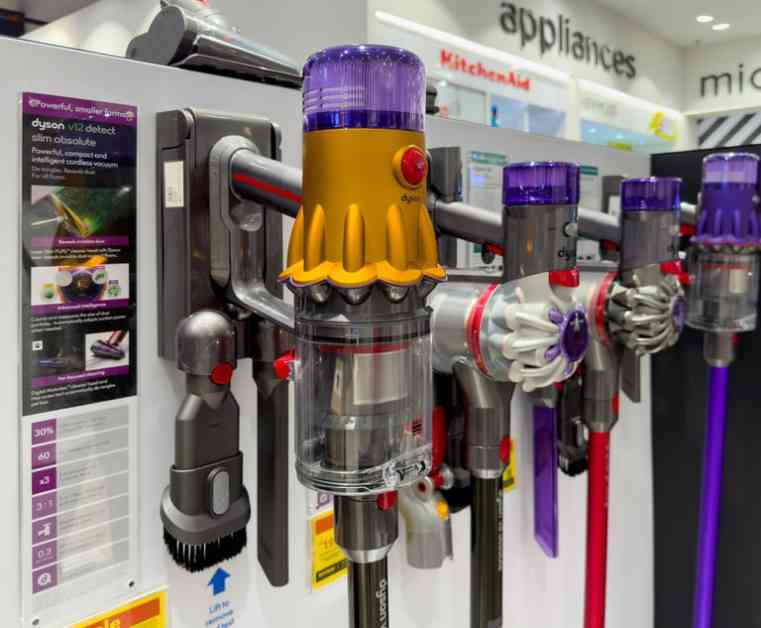SharkNinja, a leading home appliance company, has taken a bold step in the ongoing battle with industry competitor Dyson by filing a patent infringement lawsuit in a Massachusetts federal court. The lawsuit, spearheaded by attorneys from Wilmer Cutler Pickering Hale and Dorr and Gibson, Dunn & Crutcher, seeks a declaration of noninfringement for five vacuum cleaner patents. This move represents SharkNinja’s strong stance against Dyson’s claims of patent infringement and sets the stage for a legal showdown between the two companies in the vacuum cleaner market.
Background of the Lawsuit
The legal battle between SharkNinja and Dyson stems from Dyson’s allegations of patent infringement against SharkNinja. Dyson, known for its innovative vacuum cleaner designs, claims that SharkNinja’s products infringe on five of its patents related to vacuum cleaner technology. In response, SharkNinja has decided to proactively address these allegations by seeking a declaration of noninfringement in court.
SharkNinja’s decision to file a lawsuit seeking a declaration of noninfringement is a strategic move aimed at defending its products and reputation in the face of Dyson’s accusations. By taking this legal action, SharkNinja is asserting its belief that its products do not infringe on Dyson’s patents and is seeking legal validation of this position. This lawsuit marks a significant development in the ongoing competition between SharkNinja and Dyson in the vacuum cleaner market.
Implications for the Industry
The outcome of the lawsuit between SharkNinja and Dyson could have far-reaching implications for the home appliance industry as a whole. The vacuum cleaner market is highly competitive, with companies constantly innovating and developing new technologies to gain a competitive edge. Legal battles over patent infringement can disrupt this competitive landscape and impact the ability of companies to bring new products to market.
If SharkNinja is successful in its quest for a declaration of noninfringement, it could set a precedent for how companies in the home appliance industry handle disputes over intellectual property rights. By proactively seeking legal validation of its position, SharkNinja is demonstrating its commitment to defending its products and innovation against competitors’ claims of infringement. This could have a ripple effect on how companies approach intellectual property disputes in the future.
On the other hand, if Dyson prevails in the lawsuit and proves that SharkNinja’s products do infringe on its patents, it could have serious consequences for SharkNinja’s business. A ruling in Dyson’s favor could result in financial penalties, injunctions against the sale of certain products, and damage to SharkNinja’s reputation in the marketplace. This outcome would underscore the importance of thorough research and due diligence in the development and marketing of new products to avoid potential legal pitfalls.
Looking Ahead
As the lawsuit between SharkNinja and Dyson unfolds in the Massachusetts federal court, industry observers will be closely watching the proceedings and awaiting the outcome. The legal battle between these two leading companies in the home appliance industry has the potential to shape the future of intellectual property rights and competition in the vacuum cleaner market. Both SharkNinja and Dyson are likely to vigorously defend their positions and present compelling arguments in court to support their claims.
Regardless of the outcome of the lawsuit, the case between SharkNinja and Dyson serves as a reminder of the importance of protecting intellectual property rights in the highly competitive home appliance industry. Companies must be vigilant in safeguarding their innovations and designs from potential infringement and be prepared to take legal action when necessary to defend their products and reputation. The outcome of this lawsuit will undoubtedly have a lasting impact on how companies in the industry approach intellectual property disputes and innovation in the future.















